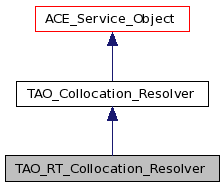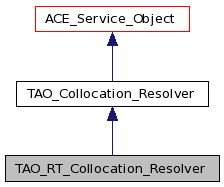This class helps decide on collocation among the maze of thread pools and lanes. More...
#include <RT_Collocation_Resolver.h>


Public Member Functions | |
| virtual CORBA::Boolean | is_collocated (CORBA::Object_ptr object) const |
| Is object collocated? | |
This class helps decide on collocation among the maze of thread pools and lanes.
Definition at line 41 of file RT_Collocation_Resolver.h.
| CORBA::Boolean TAO_RT_Collocation_Resolver::is_collocated | ( | CORBA::Object_ptr | object | ) | const [virtual] |
Is object collocated?
Get the ORB_Core's TSS resources.
Implements TAO_Collocation_Resolver.
Definition at line 23 of file RT_Collocation_Resolver.cpp.
{
// Make sure that the servant is in the same ORB that created this
// object.
if (!object->_is_collocated ())
return false;
// Get the orb core.
TAO_ORB_Core *orb_core = object->_stubobj ()->servant_orb_var ()->orb_core ();
// Lookup the target POA. Note that Object Adapter lock is held
// until <servant_upcall> dies.
TAO::Portable_Server::Servant_Upcall servant_upcall (orb_core);
TAO_Root_POA *poa =
servant_upcall.lookup_POA (object->_stubobj ()->object_key ());
// Get the thread pool associated with this POA.
TAO_Thread_Pool *target_thread_pool =
static_cast <TAO_Thread_Pool *> (poa->thread_pool ());
// If the target POA does not have a dedicated thread pool, then all
// calls to it are collocated.
if (target_thread_pool == 0)
return true;
/// Get the ORB_Core's TSS resources.
TAO_ORB_Core_TSS_Resources &tss =
*orb_core->get_tss_resources ();
// Get the lane for this thread.
TAO_Thread_Lane *current_thread_lane =
static_cast <TAO_Thread_Lane *> (tss.lane_);
TAO_Thread_Pool *current_thread_pool = 0;
// If we don't have a lane, we don't have a pool.
if (current_thread_lane)
current_thread_pool =
¤t_thread_lane->pool ();
// If the pools don't match, then the current thread belongs to a
// different pool than POA. Therefore, this object is not
// collocated.
if (current_thread_pool != target_thread_pool)
return false;
// If the current thread and the POA are in the default thread pool,
// then the object is collocated.
if (current_thread_pool == 0)
return true;
// If the current thread and the POA are in a thread pool without
// lanes, then the object is collocated.
if (!current_thread_pool->with_lanes ())
return true;
// Grab the priority model used by the POA. Note that this cannot
// be NOT_SPECIFIED because NOT_SPECIFIED is not allowed with thread
// pool with lanes.
TAO::Portable_Server::Cached_Policies::PriorityModel priority_model =
poa->priority_model ();
// If the policy is CLIENT_PROPAGATED, then we are collocated
// because the current thread is of the correct priority :-) and
// we'll simple use the current thread to run the upcall.
if (priority_model == TAO::Portable_Server::Cached_Policies::CLIENT_PROPAGATED)
return true;
// Find the target servant priority. We are really not interested in the
// servant itself but in the priority that this servant will run at.
CORBA::Short target_priority;
if (-1 == poa->find_servant_priority (servant_upcall.system_id_,
target_priority))
{
return false;
}
// If it matches the current thread's priority, then we are
// collocated. Otherwise we are not.
if (target_priority == current_thread_lane->lane_priority ())
return true;
else
return false;
}
 1.7.0
1.7.0